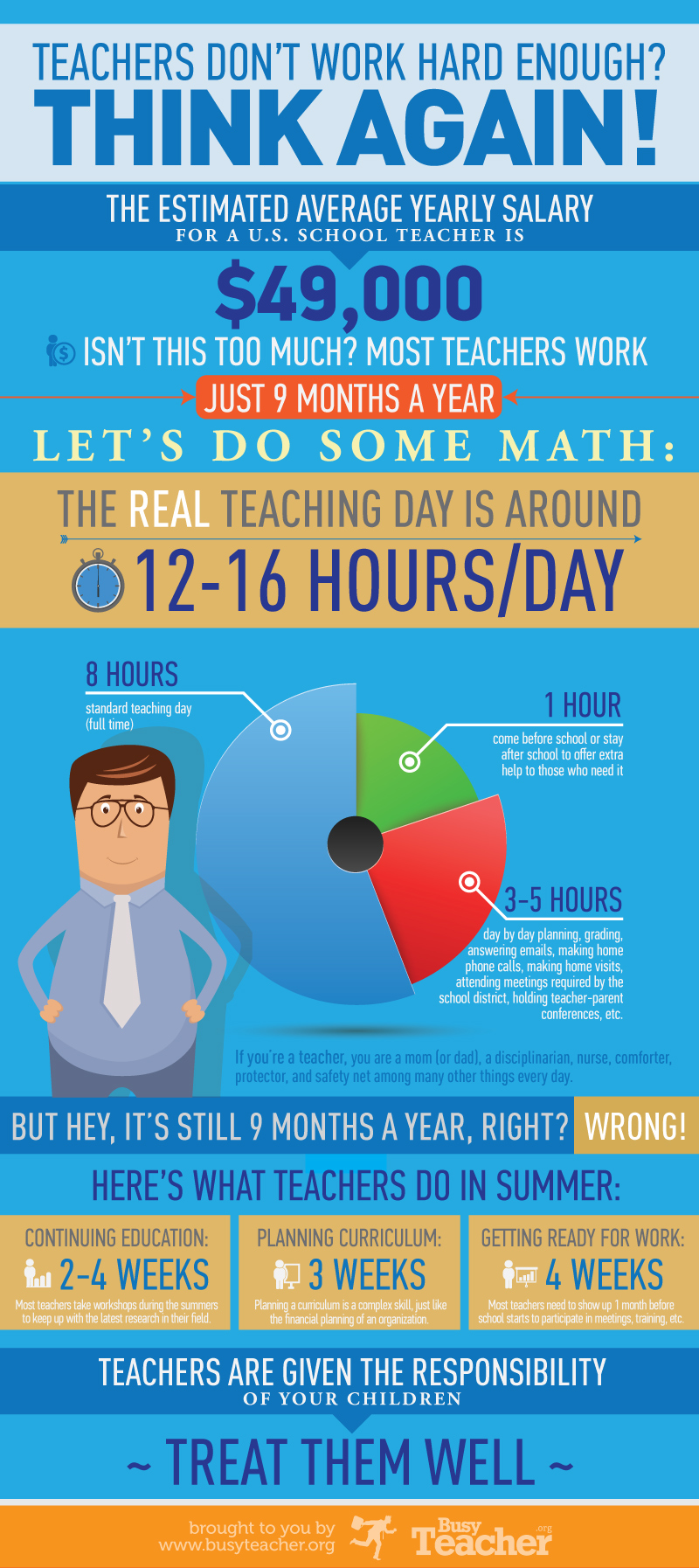“Your overtime is not a badge of honor but a systemic problem that leads to burnout. I wish we could blame it on the craziness of pandemic teaching, but we cannot. It is a deeply ingrained narrative, and it is time to rewrite the story.”*
OUCH!
That quote stings!
I work unpaid overtime regularly.
I spend personal funds on classroom necessities.
I turn “projects” for school into family outings.
Why? Because it makes life easier for me in the classroom.
Unfortunately, this scenario is the rule, not the exception.
I have worked in multiple school districts in 2 different states. In every contract I have signed since 1991, there is a clause under “job description” that says “Other duties as determined” (or something similar). That is a vague and widely interpreted phrase. It involves “volunteering” for things such as working a sporting event or school carnival, attending PTO/PTA meetings, conferences with parents outside of contract hours (with no flexibility in contract hours to accommodate for time), sponsoring an extracurricular group, and many more.
Public schools have become much more than a place to go for students to receive an education. At times it feels like we are the primary social support for students in pre-k through 12th grade. School personnel perform screening for and accommodating learning differences, emotional stability of students/parents, track homelessness, food insecurity, and much more. Schools provide distribution of meals through the Federal Child Nutrition program. School employees are “mandatory reporters” for Child Protective Services, making schools a front line detecting agency for child abuse and neglect.
Teachers in Arizona continue to pile their responsibilities higher while facing budget cuts, salary freezes or decreases, and the US’s largest class sizes.
According to Arizona School Personnel Administrators Association, Arizona currently has 3,482 classrooms staffed by a permanent substitute or personnel not meeting standard certification requirements.^ This number is slightly skewed because it also includes highly qualified teachers who move to Arizona and are considered “provisional” until completing a course such as Arizona Constitution to receive a “standard” teaching license.
Even when you consider the “exceptions” to the data, many students do not receive high-quality instruction.
Since the beginning of the 20-21 academic year, 1,360 teachers have left the profession. Almost 80% of those held a “standard” teaching license ( highly qualified teachers).
These statistics are STAGGERING!
A key part of the problem is that many of us are so committed to the young people we serve, we sacrifice ourselves and our families to serve them. It is not the kids’ fault that the job we do is so hard. That leads to burn out.
Just this weekend, I cannot count the number of articles and news stories I have come across where a teacher says, “I do it for the kids, not the money.” Most of us are in that same thought pattern. We need to change the narrative and normalize healthy boundaries for teachers.
The fact that there are a number of resources that address this issue is a clear indication of the widespread nature of the issue.
Here a a few resources for helping you define healthy boundaries:
40-Hour Teacher Work Week: https://join.40htw.com/full-year
12 secrets of teachers Who trimmed 10+ hours off their work weeks: https://thecornerstoneforteachers.com/12-secrets-teachers-trimmed-10-hours-off-workweeks/
Is a 40-Hour Teacher Work Week Realistic? https://www.simplykinder.com/40-hour-teacher-work-week/
4 Solutions to a 40 Hour Work Week for a Balanced Teacher Work week: https://teachingwell.teachable.com/p/solutions-40-hour-teacher-work-week
What are your favorite resources and practices for establishing healthy boundaries between school and home?
*https://www.weareteachers.com/stop-wearing-teacher-overtime-as-badge/
^https://drive.google.com/file/d/1r9dEm0NlXILodz-sjpCFV7C-PPY-Lz5J/view
Photo Credit: https://busyteacher.org/16320-teachers-dont-work-hard-enough-infographic.html










Comments 2
Thanks for the blog, Susan. I feel everything you are saying! I have always struggled with a work-home balance. I always think that if I do all this extra work, it will benefit my students. To a certain extent, yes, but sometimes it crosses over to the point where it actually hurts them, because I have nothing left to give.
Teachers care so much about their students, that sometimes they forget to take care of themselves. One thing I have done is try to limit the nights that I take my laptop home. This helps me “get away” from school work, but it doesn’t always work!
Thank you for this, Susan! So many teachers struggle with creating a work/life balance. One reason for that is because teaching is a job that is never finished. There is always more work to do. However, another reason is because society’s expectations for teachers are so high. We are constantly trying to meet those expectations and feel like we never can.